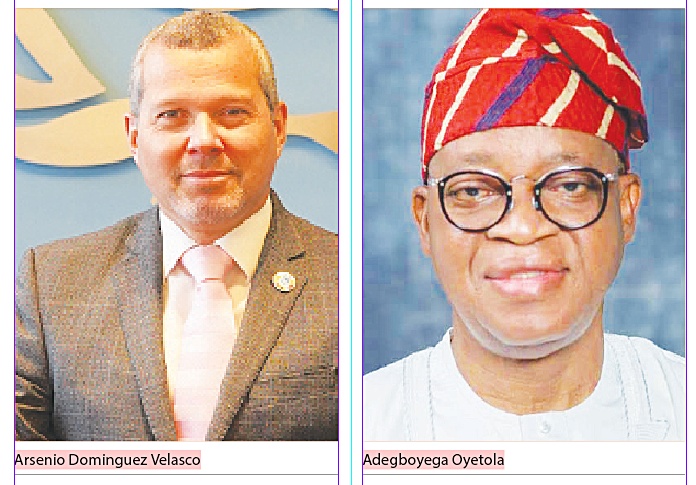Nigeria Urged to Prioritize Safety for Effective Utilization of Expanded Maritime Boundaries
In celebration of the 2024 World Maritime Day, experts have highlighted the need for Nigeria to prioritize safety in order to fully benefit from the expanded maritime boundaries recently allocated to the country. The United Nations has extended Nigeria’s marine territories by an additional 16,300 square miles, significantly expanding its potential for marine wealth. However, experts stress that this potential can only be realized if safety measures are implemented in accordance with the International Maritime Organization (IMO) SOLAS Convention.
The Chairman of the Commission on the Limits of Continental Shelf (CLCS), Professor Lawrence Awosika, emphasized the importance of marine safety during the event held by the Federal Ministry of Marine and Blue Economy. He warned that Nigeria must prioritize safety measures to ensure the new resources contribute to national wealth. The CLCS worked diligently over many years to secure the extension of Nigeria’s maritime boundaries in accordance with the United Nations Convention on the Law of the Sea (UNCLOS), 1982. The recent approval from the United Nations grants Nigeria maritime territory five times larger than Lagos State.
The Minister of Marine and Blue Economy, Adegboyega Oyetola, stressed the need to address safety and security challenges in Nigeria’s maritime sector. He highlighted the importance of upgrading facilities and building capacity to ensure the country remains competitive in the global seaborne trade market. Oyetola also mentioned the government’s focus on embracing emerging technologies and fostering innovation to drive growth in the maritime sector. The ongoing efforts include the digitalization and automation of port operations to enhance safety, security, efficiency, and reliability.
The Nigerian Maritime Administration and Safety Agency (NIMASA) Director General, Dr Ekundayo Mobereola, echoed the importance of safety in the maritime industry. He emphasized the four key areas that must be prioritized: investing in cutting-edge safety technologies, emphasizing training and capacity building, strengthening regulatory frameworks, and fostering collaborations between the public and private sectors. Mobereola highlighted NMASA’s commitment to creating a safer, efficient, and sustainable maritime future in Nigeria and beyond.
The Nigerian Ports Authority (NPA) Managing Director, Dr Abubakar Dantsoho, discussed the Authority’s strategies to tackle greenhouse gas (GHG) emissions. The maritime industry’s contribution to global GHG emissions calls for measures to reduce carbon footprints. The NPA aims to develop a Port Emissions Inventory to monitor and measure emissions from all port-related activities. The NPA is also focused on enhancing existing Port Reception Facilities and adopting smart port technologies to improve operational efficiency and minimize environmental impact. Collaboration among all stakeholders is crucial to address environmental and safety challenges in the maritime sector.
Discover more from Tension News
Subscribe to get the latest posts sent to your email.

